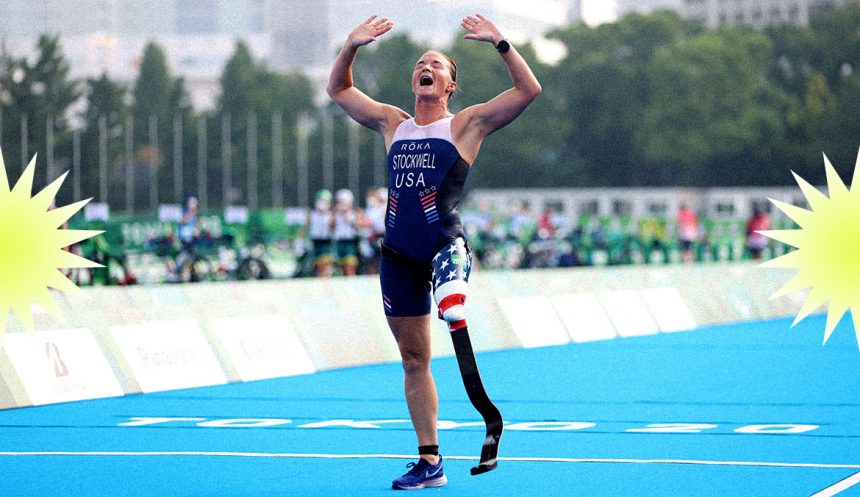Melissa Stockwell is a testament to the benefits of being a well-rounded athlete.
As a three-time Paralympian, Stockwell initially competed as a swimmer in the 2008 Beijing Games before transitioning to the triathlon. She found passion in the challenge of mastering three sports and secured a bronze medal in the paratriathlon at the 2016 Rio de Janeiro Games. Now, she is gearing up for another shot at a medal in Paris on September 1.
Stockwell emphasizes the importance of diversity in training, citing the overall strength and injury prevention benefits of engaging multiple muscle groups through various activities.
In a landscape saturated with one-size-fits-all fitness solutions, the triathlon stands out as an embodiment of holistic athleticism, encompassing swimming, biking, and running.
Stockwell and her paratriathlon teammates stress the value of enjoying fitness activities and exploring new forms of movement to maintain a sense of playfulness and prevent burnout.
1. Fitness should be fun
Rachel Watts, set to make her Paralympic debut in Paris, finds joy and nostalgia in the playful nature of the triathlon.
Embracing a childlike mindset in fitness can involve joining recreational sports teams or trying new activities like ballet or surfing.
“Incorporate strength training, take a yoga class, take a Pilates class. There’s no harm in trying. Just keep trying to keep your whole body pieced together and healthy, and keep things interesting at the same time.” —Melissa Stockwell, paratriathlete
2. More variation means fewer overuse injuries
Diversifying training routines, such as in the triathlon, helps prevent overuse injuries common in single-sport athletes.
Being well-rounded allows athletes to continue training even when faced with specific injuries, promoting overall fitness and recovery.
3. Recovery days are key
A well-rounded fitness regimen includes a mix of workouts and rest days to prevent burnout and support muscle recovery.
Stockwell emphasizes the importance of balancing high-intensity workouts with lighter recovery sessions for long-term success.
4. Balance in fitness equals balance in life
Mastering the triathlon disciplines requires strategic balancing of training efforts, mirroring the challenges of maintaining equilibrium in life.
Acknowledging the need for flexibility, adaptability, and prioritization in training can translate to valuable life lessons and personal growth.
For non-elite athletes, the key lies in exploring various fitness modalities, embracing beginner status, and keeping the body and mind engaged and healthy.






